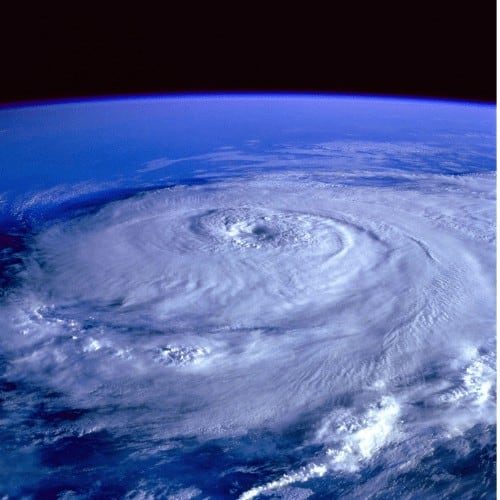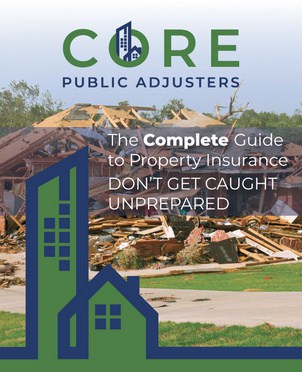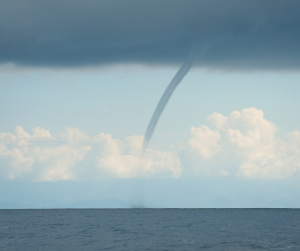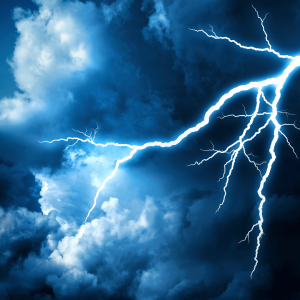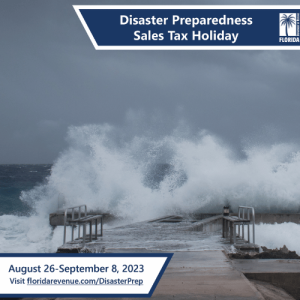The National Hurricane Center announced it will issue weather bulletins starting 17 days earlier this hurricane season compared to previous years. The hurricane season officially starts June 1st but for the past six years, Atlantic Tropical Cyclones have formed prior to this date, which has prompted the early start of the weather bulletins this year. The official start date for hurricane season remains June 1st, however.
The 2021 hurricane names are:
- Ana
- Bill
- Claudette
- Danny
- Elsa
- Fred
- Grace
- Henri
- Ida
- Julian
- Kate
- Larry
- Mindy
- Nicholas
- Odette
- Peter
- Rose
- Sam
- Teresa
- Victor
- Wanda
Some hurricane names have been retired.
This happens when the named storm causes so much death and destruction that it is considered for retirement to honor those impacted and to avoid historical confusion. In other cases, names may be removed for cultural or political considerations (such as Hurricane Isis from the East Pacific in 2016).
In recent years, Hurricane Dorian (2019), and Hurricanes Laura, Eta, and Iota (2020) have been retired from the Atlantic basin list.
NOAA’s Atlantic Oceanographic and Meteorological Laboratory notes retired hurricane names for the Atlantic basin:
| Audrey 1957, Agnes 1972, Anita 1977, Allen 1980, Alicia 1983, Andrew 1992, Allison 2001 |
| Betsy 1965, Beulah 1967, Bob 1991 |
| Connie 1955, Carla 1961, Cleo 1964, Carol 1965, Camille 1969, Celia 1970, Carmen 1974, Cesar 1996, Charley 2004 |
| Diane 1955, Donna 1960, Dora 1964, David 1979, Diana 1990, Dennis 2005, Dean 2007, Dorian 2019 |
| Edna 1968, Eloise 1975, Elena 1985, Erika 2015, Eta 2020 |
| Flora 1963, Fifi 1974, Frederic 1979, Fran 1996, Floyd 1999, Fabian 2003, Frances 2004, Felix 2007, Florence 2018 |
| Greta 1978, Gloria 1985, Gilbert 1988, Georges 1998, Gustav 2008 |
| Hazel 1954, Hattie 1961, Hilda 1964, Hugo 1989, Hortense 1996, Harvey 2017 |
| Ione 1955, Inez 1966, Iris 2001, Isidore 2002, Isabel 2003, Ivan 2004, Ike 2008, Igor 2010, Irene 2011, Ingrid 2013, Irma 2017, Iota 2020 |
| Janet 1955, Joan 1988, Juan 2003, Jeanne 2004, Joaquin 2015 |
| Klaus 1990, Keith 2000, Katrina 2005 |
| Luis 1995, Lenny 1999, Lili 2002, Laura 2020 |
| Marilyn 1995, Mitch 1998, Michelle 2001,Matthew 2016, Maria 2017, Michael 2018 |
| Noel 2007, Nate 2017 |
| Opal 1995,Otto 2016 |
| Paloma 2008 |
| Roxanne 1995, Rita 2005 |
| Stan 2005, Sandy 2012 |
| Tomas 2010 |
| Wilma 2005 |
Wondering how hurricanes get named? Here’s how.
According to NOAA on how hurricanes are named, “During the 19th century, hurricane names were inspired by everything from saints to wives to unpopular politicians. In 1978, it was agreed that the National Hurricane Center would use alternating men and women’s names following the practice adopted by Australia’s bureau of Meteorology three years earlier in 1975.”
Today, a predetermined list of names is used for tropical storms for each ocean basin of the world. The United Nations’ World Meteorological Organization, representing 120 different countries, determines the list. In order to get on the list, hurricane names must meet two fundamental criteria:
- Hurricane names must be short and readily understood when broadcast.
- Hurricane names should be culturally sensitive and not convey unintended or inflammatory meaning.
It is for the first reason that the Greek alphabet will no longer be used to name hurricanes.
Although this warning may feel too soon in the year, please start thinking about your hurricane readiness plans.
We recommend that you start by re-reading your property insurance policy and know the answers to these questions:
- What is your hurricane deductible and is it a percentage or a flat dollar amount?
- Does your property insurance policy cover expenses should you need to live somewhere else, temporarily?
- Is wind damage covered by your policy?
- Is all water damage covered by your policy?
- What should you do if you have hurricane damage?
Insurance companies typically will not increase limits or allow you to buy a new policy when storms are imminent. Therefore, now is the time to review your policy, and decide if it is right for you.
Do you have a hurricane claim?
Call us if you have an existing hurricane claim with your insurance provider that has been underpaid or denied. We’ve worked with many clients to get them more for their claim.

